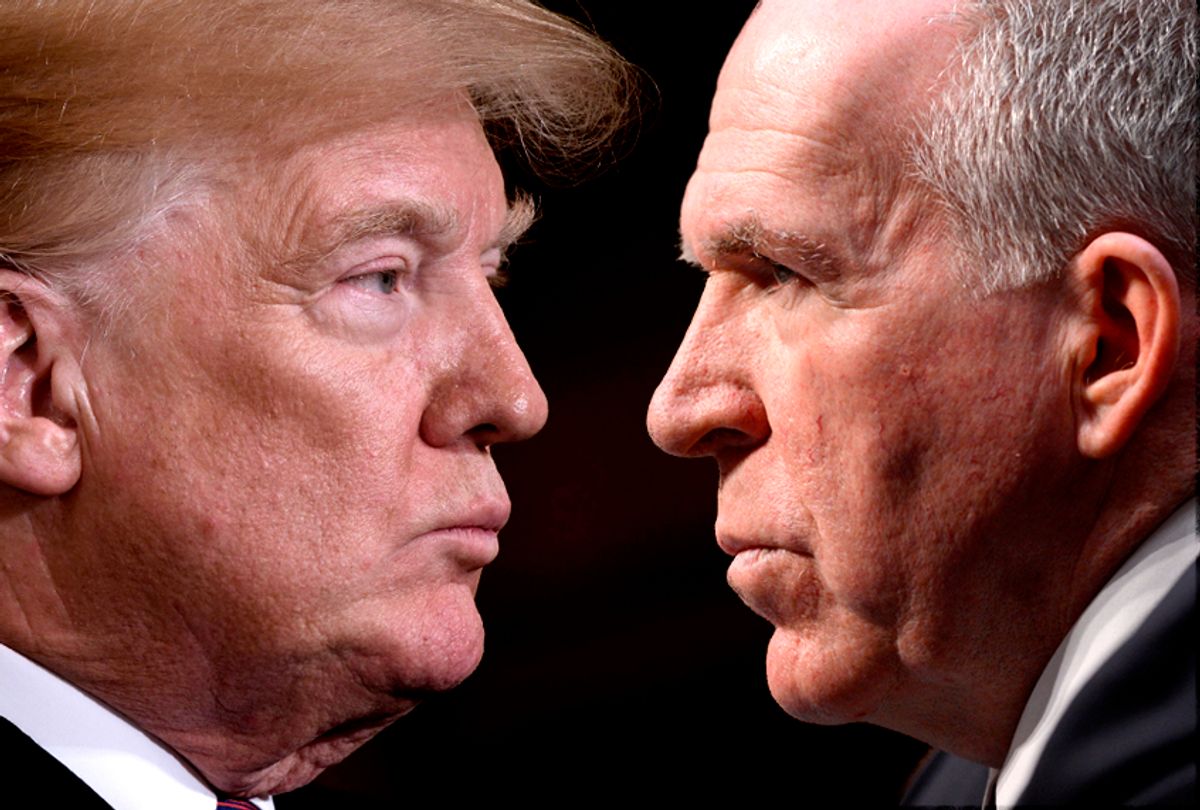President Donald Trump publicly parted ways with his own national security team on a number of foreign policy issues in a series of Wednesday morning tweets.
"When I became President, ISIS was out of control in Syria & running rampant. Since then tremendous progress made, especially over last 5 weeks. Caliphate will soon be destroyed, unthinkable two years ago. Negotiating are proceeding well in Afghanistan after 18 years of fighting," Trump wrote in his first tweet. He quickly followed that up by adding, "....Fighting continues but the people of Afghanistan want peace in this never ending war. We will soon see if talks will be successful? North Korea relationship is best it has ever been with U.S. No testing, getting remains, hostages returned. Decent chance of Denuclearization..."
A few minutes later, Trump tweeted that "...Time will tell what will happen with North Korea, but at the end of the previous administration, relationship was horrendous and very bad things were about to happen. Now a whole different story. I look forward to seeing Kim Jong Un shortly. Progress being made-big difference!"
Later that morning, Trump also posted a pair of tweets about Iran saying: "The Intelligence people seem to be extremely passive and naive when it comes to the dangers of Iran. They are wrong! When I became President Iran was making trouble all over the Middle East, and beyond. Since ending the terrible Iran Nuclear Deal, they are MUCH different, but a source of potential danger and conflict. They are testing Rockets (last week) and more, and are coming very close to the edge. There economy is now crashing, which is the only thing holding them back. Be careful of Iran. Perhaps Intelligence should go back to school!"
The attacks evoked a response from top Trump critic and former CIA chief John Brennan:
Trump's comments were most likely a response to remarks made by Dan Coats, the U.S. director of national intelligence, during an appearance before the Senate Intelligence Committee on Tuesday. When discussing North Korea, Coats told the committee that "we currently assess that North Korea will seek to retain its [weapons of mass destruction] capabilities and is unlikely to completely give up its nuclear weapons and production capabilities because its leaders ultimately view nuclear weapons as critical to regime survival," according to Politico.
Coats also questioned Trump's decision to pull American troops out of Syria, arguing that ISIS still poses a security threat despite its substantial territorial losses in that country. As Coats put it, ISIS will "very likely will continue to pursue external attacks from Iraq and Syria against regional and Western adversaries, including the United States" and "is intent on resurging and still commands thousands of fighters in Iraq and Syria." He also argued that the terrorist group "will seek to exploit Sunni grievances, societal instability, and stretched security forces to regain territory in Iraq and Syria in the long term."
Regarding Iran, Coats was more ambivalent. Although he acknowledged that "we do not believe Iran is currently undertaking the key activities we judge necessary to produce a nuclear device," he admitted that the country "publicly threatened to push the boundaries" of the nuclear agreement unless they could personally derive benefits from it. He also accused Iran of sponsoring terrorists in Europe and the Middle East and supporting proxy militias in Yemen and Iraq.



Shares